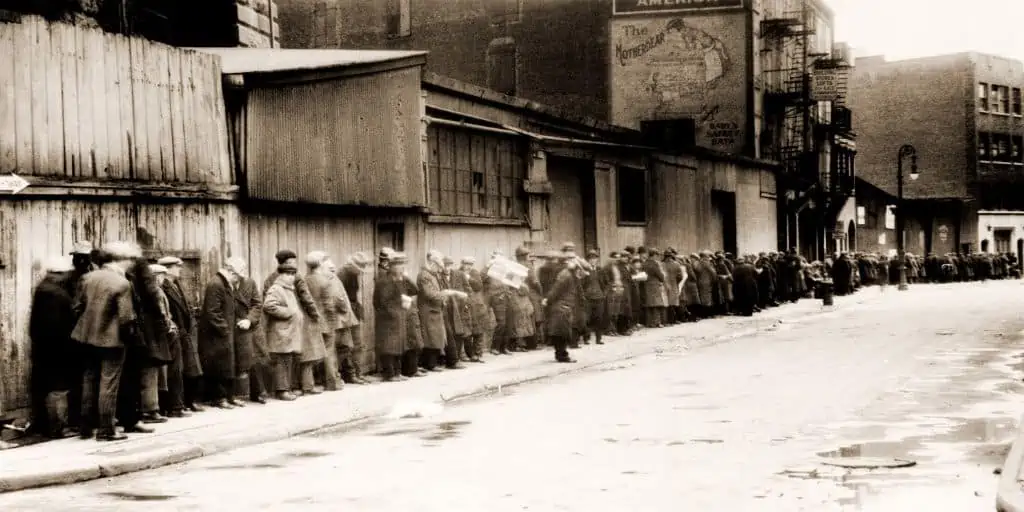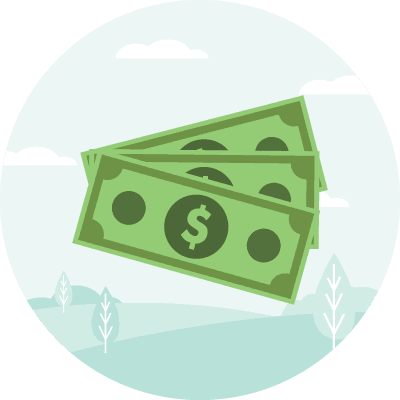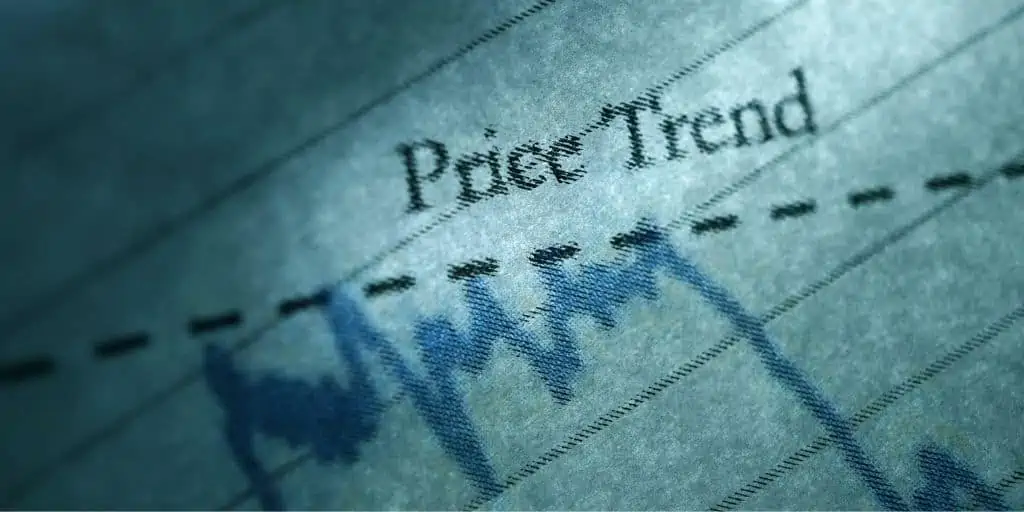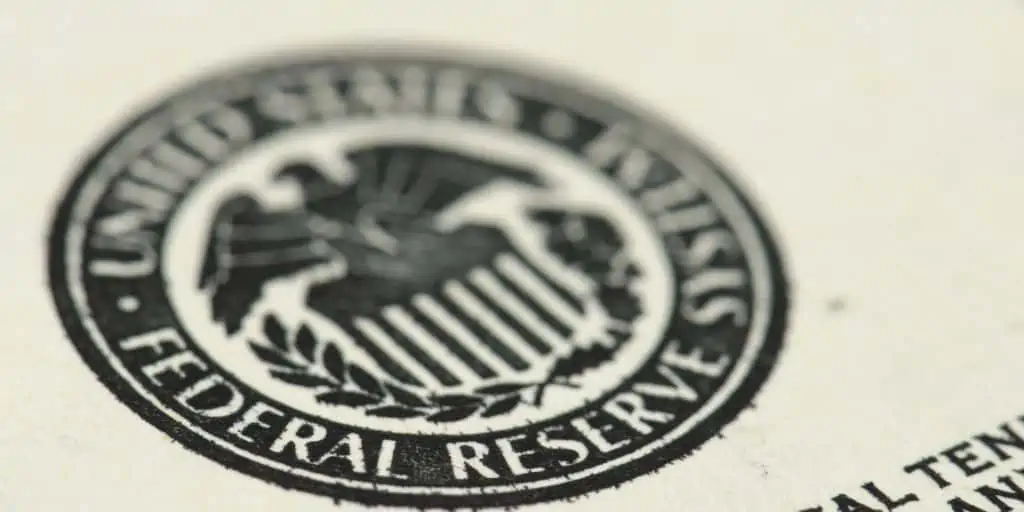What Is Deflation?
REtipster does not provide tax, investment, or financial advice. Always seek the help of a licensed financial professional before taking action.
Deflation Explained
Also known as negative inflation, deflation results from a general, sustained fall in the cost of labor, capital, goods, and services, though relative prices may remain unchanged. This decline is typically associated with a contraction in the supply of cash and credit in the economy. As a result, deflation can boost consumers’ purchasing power, usually temporarily.
How to Measure Deflation
Deflation is measured using the Consumer Price Index (CPI)[1]. This economic indicator tracks the prices of a group of commonly purchased goods and services over a given period. The U.S. Bureau Of Labor Statistics routinely computes many different CPIs and publishes the changes every month.
Economists can tell if the economy is experiencing deflation or inflation by comparing the results of one period to another. For example, when the CPI is consistently dropping over a continuous period (say six months or one year), the economy is deflating or experiencing deflation. On the other hand, when prices consistently rise over a continuous period, the economy is going through inflation.
Is Deflation Worse Than Inflation?
For the individual, it is always preferable for prices to fall than to rise. But for the economy as a whole, deflation is not necessarily a good thing.
A deflationary period can quickly spiral into an economic recession (and worse, a depression) because people keep hoarding their cash, expecting prices to go even lower.
In addition, people are better insulated from inflation than deflation. For instance, investing in stocks, corporate bonds, and real estate assets may yield better returns than the inflation rate. However, during deflation, these investments become riskier because the drop in prices, lackluster demand, and higher borrowing costs put businesses in dangerous territory.
What Causes Deflation?
There are two primary causes of deflation:
1. Decrease in Aggregate Demand
When there is a decline in aggregate demand while supply remains the same, the price of goods and services will inevitably drop. However, without the demand to match, supply eventually becomes too high and sellers have no choice but to lower prices if they want to get their products sold.
The following factors may trigger a decrease in aggregate demand:
- Tighter Monetary Policies — Central banks generally impose a tighter monetary policy by increasing interest rates. As a result, people earn higher interest in their savings, which encourages them to save more instead of spending their money immediately. Increased interest rates may also discourage borrowing, further reducing the money in circulation. Less spending leads to a drop in demand for products and services.
- Negative Economic Events — Adverse events affecting the economy, such as a global pandemic or geopolitical instability, may lead to a sustained loss of confidence among consumers. People become more pessimistic about the future of the economy and are therefore more likely to reduce their current spending, resulting in a drop in demand.
2. Increase in Aggregate Supply
When there is an increase in overall supply, more options become available to consumers. In a bid to stay competitive, sellers will often lower their prices so they can attract more buyers.
The following factors may trigger an increase in aggregate supply:
- Lower Production Costs — If it costs less to manufacture products, companies can make more for the same price, leading to an oversupply (especially if demand remains the same). A significant drop in production costs also means it is easier for competitors to enter the marketplace, increasing the number of substitute goods[2] available to buyers.
- Technology — Rapid adoption of new technologies in production or advances in existing technology can cause overall supply to go up. By relying on these technologies, manufacturers can effectively lower their production costs which, in turn, can lead to a decline in the prices of products.
Economic Consequences of Deflation
To some extent, a modest drop in the costs of certain products, such as food or energy, can be great for the economy because they increase nominal consumer spending. When people have more purchasing power, they can afford to consume more commodities and engage in activities that stimulate the economy, such as increased investments and new ventures.
On the other side of the coin, deflation may have negative consequences because a steady decline in the overall price of goods in an economy means that businesses cannot sell their goods and services or are forced to sell them at lower prices. Over time, this can lead to businesses shutting down operations or laying off workers because they are no longer operating profitably.
Debt is also a hugely negative consequence of deflation. Because higher interest rates are often a cause of deflation, debts become more expensive for borrowers. Greater debt discourages borrowing at retail and institutional levels.
Deflation Occurrences in the U.S.
Though not as common as inflation, deflation has occurred several times in the United States.
One of the most significant occurrences of deflation was the lead-up to the Great Depression from 1929 to 1941[3]. The deflation stemmed from the banking panics of 1930 and 1931[4], which saw the money supply fall by nearly 30% and essentially collapsed the banking system.
The resulting decline in the supply of money and credit caused a drastic price drop, resulting in a huge plunge in output, employment, and wage rates[5].

A breadline near Brooklyn Bridge, New York, during the Great Depression. (Credit: The Everett Collection)
Deflation was also a factor in the global financial crisis of 2007 to 2009, also known as the Great Recession[6]. During this most recent occurrence of deflation in the U.S., there was a marked drop in home and commodity prices while unemployment soared. However, the effects of this deflation were less severe than economists initially feared.
Is Deflation Ever a Good Thing?
In some instances, deflation may be more favorable for the economy. Some examples include deflation caused by positive developments, such as technological innovations or meaningful policies that make the costs of goods and services cheaper.
For example, the U.S. economy greatly benefited from the deflationary period following the Second Industrial Revolution[7]. This period was marked by a major increase in productivity levels thanks to improved steam engines and more efficient communication systems. Transportation costs were also cheaper, allowing businesses to expand faster.

Steam power, railroads, and the telegraph were the three main drivers of the Second Industrial Revolution.
Under this type of deflation, prices were lower, but thanks to technological advancements, output, productivity, and profits kept climbing. This means wage levels rose as well, so people were generally well off.
Combating Deflation
In the past, the Federal Reserve has attempted to tackle deflation using expansionary monetary policies to stimulate the economy. In other words, increasing the money supply by lowering the fed funds rates encourages lending and buying up bonds in the open market, increasing the amount of money in circulation.
The government can also tackle deflation by lowering taxes. Tax cuts stimulate demand because they increase disposable income and encourage businesses to invest in their growth. With more money to spend, people are likely to ease up saving and instead buy what they need or want with the extra money available.
This increase in economic activities can cause prices to rise over time, reversing the deflationary trend.
Takeaways
- Deflation is an economy-wide drop in general price levels for goods and services over a given period. It is usually associated with a decline in the supply of money in the economy.
- Deflation is typically worse than inflation because it can quickly spiral into a recession, making investing riskier. Left unchecked, deflation stemming from adverse economic developments can lead to unemployment, constricted money supply, and higher borrowing costs.
- However, deflation may be good for the economy if triggered by meaningful technological advancements leading to lower prices and increased output.
Sources
- Bureau of Labor Statistics. (n.d.) Consumer Price Index. Retrieved from https://www.bls.gov/cpi/
- Market Business News. (n.d.) What are substitute goods? Definition and meaning. Retrieved from https://marketbusinessnews.com/financial-glossary/substitute-goods-definition-meaning/
- Federal Reserve History. (n.d.) The Great Depression. Retrieved from https://www.federalreservehistory.org/essays/great-depression
- Federal Reserve History. (n.d.) Banking Panics of 1930-31. Retrieved from https://www.federalreservehistory.org/essays/banking-panics-1930-31
- Franklin D. Roosevelt Presidential Library and Museum. (n.d.) Great Depression Facts. Retrieved from https://www.fdrlibrary.org/great-depression-facts
- Field, A. (2021). What caused the Great Recession? Understanding the key factors that led to one of the worst economic downturns in US history. Business Insider. Retrieved from https://www.businessinsider.com/personal-finance/what-caused-the-great-recession
- Niiler, E. (2019). How the Second Industrial Revolution Changed Americans’ Lives. History.com. Retrieved from https://www.history.com/news/second-industrial-revolution-advances







